Aprendizado
Seminar Learning Assessment
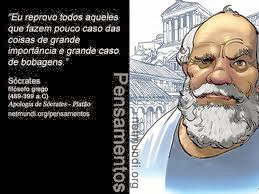
DEPARTMENT OF GRADUATE
Ed.D.
COHORT 2014
Update on Evaluation of Learning.
Professor Dr. Mirian Ines Capelari
Topic: Seminar Assessment of learning
Author: José Luiz Teixeira da Silva¹
_____________________________
¹ Professor, Specialist in supervision and school administration, Specialist in educational psychology, pedagogy specialist in business, specialist in public law and PhD student at UCSF Education.
From this position, the examination is the main technique and in many cases the only, used to assess the work of individual students. For this reason, long examinations have become instruments of power to control access to the privileges of education and influence the learning process .¹
_____________________________
(2) Kvale, 1992; Popkewitz, 1992; Gimeno, 1995
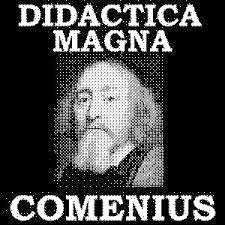
INTRODUCTION.
Portfolio Update in Assessment of Learning.
The aim of this study is to show yet of a personal perspective, the perspective student do that was developed at the seminar on updated assessment of learning. The seminar was taught by Professor Dr. Miriam Ines Capelari and addressed in the evaluation of 9, 10 and 11 February 2015 at the Catholic University of Santa Fe, Argentina.
Portfolio is a work produced by the student for a specified period (the school year, a seminar for example). Cando is installed properly, this collection becomes an excellent evaluation tool.
According Arter "A portfolio is a deliberate selection of student work that tells the story of their efforts, progress or achievement. In his student participation in selecting contents to be included, the selection criteria and guidelines for judging merit and evidence of the process of self-reflection. "(3)
Activities must meet the student considers relevant, chosen after an analysis with their help. The criterion of choice, it is worth remembering, it can not be just excellence. What matters is the selection of works that demonstrate the learning path.
Ideally, the portfolio has the following structure: introduction (presentation of content), a brief description of each job, the dates on which they were made a review section with reflections of student self-evaluation and a part reserved their observations.
In consideration of the importance of evaluation as integrated into a system of values that are part of its solid foundation inclusive process, research and. Knowledge and willingness to comply with the duties and social rights, among others. Through the use of methodologies and analytical techniques.
__________________________________________
(3) Arter, 1990, p. 27
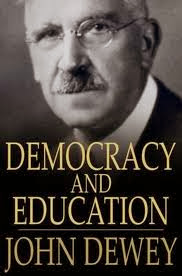
Date, Santa Fe, Monday, February 9, 2015.
Today began the seminar update on the assessment of learning, taught by Prof. Dr.. Mirian Ines Capelari, began presenting as usual each one indicate that it was formed, the undergraduate, graduate, what he does in his work and from there went to some basic definitions of what is the assessment, development of criteria for evaluation and self-assessment. As each student has a different view of the issues that are being tested, on how to understand the evaluation by a personal projection but making that evaluation is based on the significant theories.
Assessment criteria
=> Reflections;
=> Questions;
=> Reviews;
=> Reviews on the topics covered.
Conceptualizing educational evaluation
It is the way to test learning, contextualized or not, in order to qualify teaching, and develop action strategies to see if teaching is understood, assimilated, in its broadest form or as a more coherent encyclopedic learning, stored results, .
Report considers the main problems involved in the issue of educational evaluation.
The way to approach educational assessment is only in each student, means that every student learns differently, it is very difficult to make meaningful for all learning, it is also important to be objective and emancipatory, not as a means of control, more if as a instigator of significant new knowledge.
Activity 2
Ethics and Evaluation
Group: Erika, Jose Luiz, Vania, Wagner, Keyla, Alba and Valdilene.
It focused reflection of the fact that the evaluation does not consider the ethical dimension often.
http://seer.fclar.unesp.br/iberoamericana/article/view/6291
Educational evaluation can be:
=> Path to correct diagnosis, mediate, observe the results;
=> Continuous process;
=> Educational, reflective and dialogic process;
=> Rethinking education practice;
=> Analyze lessons learned and their application;
=> Identify successes and mistakes;
=> Complex and thoughtful look of the educational process;
=> Intentionality;
=> You will succeed in education process;
=> Evaluation is a value judgment.
Problems in the evaluation:
Often the interest in evaluation, in an impoverishing general sense, is limited to the results obtienem students. In practice the attention is focused and limited to the ratings, which specify the results and give closed and completed a process that must remain open unfinished.
=> Inadequate instruments;
=> Incompatibility evaluation;
=> Poor teacher training;
=> Teaching and Learning part;
=> Meanings, contexts and perspectives;
=> Evaluation, self-assessment and intentionality.
The willingness of teachers to make assessment a key learning resource, a resource for training, while means ensuring quality learning, rather than an instrument of selection, exclusion, so linked to a meritocratic vision of education.
Effect assessment:
=> Sorts;
=> Exclusionary;
=> Value judgment;
=> Emancipatory;
=> Transformadora.
The assessment is to be in this sense a form of self-regulation of the same process that sustains and justifies the necessary adjustments to ensure proper training process. The penalty for mistakes made in the process has to do with a constructive view. The story of learning, POSTMAN (1995 pág145) explains, narrates the adventure of overcoming our mistakes.
On the other hand, the work of inquiry which enable and compel reflection and dialogue are appropriate means to walk the path of discovery and meeting.
The assessment should not be a means to
that subjects adapt to instructional media,
but a system to adapt conditions
instruct individuals for the purpose of
maximize their potential for success.
"The Overall Assessment Prophcy"
(Dochy and Mc Dovell, 1997)
The evalitativos criteria should be neither hidden nor mysterious but transparent. The attitude of teachers and students can not be passive but all must be activated and perfectly assembled in a project perceive it as common. The evaluation from this cultural perspective implies revaluation and self reaching intended learning achievements.
"Somehow, teaching is carried out in a climate of evaluation, while homework communicate internal quality criteria in the processes to be performed and the products they expected and therefore we can say that there is a certain climate control in the daily dynamics of teaching, without necessarily manifest itself in formal processes, on the other hand, are very common. a student knows that you evaluate when asked when will oversee tasks when the teacher proposes a line work, when you disapprove "(Gimeno, 1988)
First we saw that the evaluation is never neutral, they always have a goal to achieve the goal of maintaining or transform all depends on what you want to do with learning, if you want traditional or emancipatory.
In this regard, it is noted that "evaluation is a phenomenon usually confined to the classroom, based on the students and limited control of knowledge gained through testing of various kinds" (Santos Guerra, 1993). (4)
This will determine who is the intention of what we want to evaluate a curriculum for the labor market will be different from a resume to political and social education of the citizens. Ideally, a curriculum has mediated intention to form the citizen and at the same time meet the job market. So every time we evaluate we have to take into account what? Why? we are evaluating.
Thus, the evaluation joined the examiner and control tradition that has characterized their practices directly linked to the assessment of the results and restricted to student learning, whose effects continue to be felt until now. (5)
The qualities of the evaluator:
=> Justice;
=> Impartial Values;
=> Ethics;
=> Capacity;
=> Responsibility;
Evaluation issues:
=> Validity;
=> Credibility;
=> Consistency;
=> Justice;
=> Is a value judgment, it is comparative;
=> Requires defining criteria, standards;
=> It is not always quality is not always fair;
=> Moral, ethical and social responsibility;
=> Subjective Implication;
_________________________
(4) Santos Guerra, 1993: 23
(5) Moreno, 2000, Unpublished Doctoral Thesis
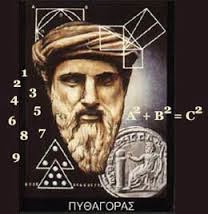
Question:
Can there be different assessments of the same object?
If indeed.
Illuminative evaluation as a socio-anthropological paradigm taking into account the context of educational programs, the system of teaching and learning medium.
Evaluation criteria:
=> Expression of an identity;
=> Materials;
=> Educational approach;
=> Ideological values;
=> Multicultural.
institutional project:
=> Educational approach;
=> Expression identity;
=> Ideological values.
Question:
What the curriculum evaluated?
=> Various forms of interpretation of the plans of study;
=> Different modes of assessment;
=> Different purposes and meanings.
Build the object of evaluation:
What is going to evaluate?
Object.
What purpose? Why?
Goals.
What purpose? For what?
Understand, improve and make decisions.
Determine the audience will be directed evaluation (Who?
Protagonists and others.
Rating assessment:
=> List components of the object to be evaluated;
=> Expected results and effects that may occur;
=> Involves determining how and generate culture.
"Judge the value or merit of an object" (6)
_________________________________
(6) Sttuflebeam and Schinkfield, 1987

Following the development of qualitative approaches, it has expanded the concept of evaluation defined as "a process of collecting and providing evidence on the functioning and evolution of classroom life, based on which decisions about the possibility taken , effectiveness and value education curriculum. Rather than measuring, evaluation involves understanding and value. " (7)
It is important to rethink teaching practice, qualifying teachers so that they are not mere reproduction of knowledge produced, but the persons authorized to make education meaningful and contextualized. Not enough to check the learning, you must first find out if the teachings were relevant for intellectual, moral, social that student.
It is difficult for those outside the school improve the quality of resources within it, not just as thought in the 50s and 60s, with teachers providing new books and teaching materials or a consultancy. Is the quality of the teacher that determines the quality of education, and in general, experience shows that teachers are bad executors of the ideas of others. The development of teachers is a precondition for the development of curriculum, and teachers should play an active role in the development and improvement of the curriculum. His understanding, sense of responsibility and commitment in improving the educational experience of students are essential ingredients. (8)
For children with special needs or minority, it is only a pretext to warn that the school generates particular identities held on the grids assessment educabilidad of subjects, their time learning or problem solving, the ability regulate their times depending on the collective regulation of their ability to understand the views or alternative conceptualizations of world culture has developed for centuries and valued as necessary to instill. In this sense, returning to the initial theme, which should concern would be the criteria to define both the heterogeneous as homogeneous. Both appear as animated by political constructions relative efficiency or effectiveness in achieving the objectives of the schooling.
_____________________________
(7) Pérez Gómez, 1989: 431
(8) Sancho, et. to 1998
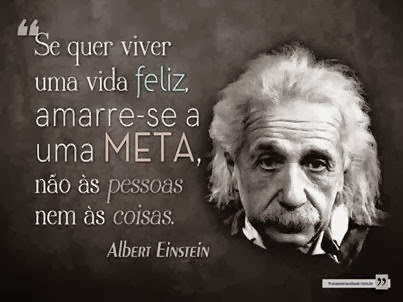
Date, Santa Fe, Tuesday, February 10, 2015
Today we were provoked to answer some questions about the evaluation, because as doctoral students seek education through dialogue and reach some conclusions that have been shared with the whole group.
theoretical and methodological approaches
Do comparative studies curriculum are advisable?
Yes. There is always something that can be used in other curriculum, often enriching, humanizing, improve procedures.
Is it possible to generalize from local situations?
Yes. From the points of view isolated and after seeing all the other views we can see that it is possible that a minor point of view can be reached points more complex view.
Are assessments can be neutral?
No, in all there is intentionality.
Legitimizing policies through evaluations.
Impose assessments needs and preferences.
You might think that evaluation is a specific situation that transcends the relationship between a teacher and his student, but schooling is a social action and its results cover all social levels of student life. His note or qualification shall be seated in an academic record certificate, with broad social implications. It will affect their school promotion, insertion in the workplace, access to scholarships and so on. At the level of feedback functions affects educational programs, teaching strategies and assessment strategies themselves. (9)
holistic view of curriculum
In Argentina I had a strong resistance to external evaluation in the 90s, however, was very important to improve the teaching of critical and emancipatory way, social concepts and cultural context.
curriculum policy:
=> Community work;
=> The student society;
=> The humanized curriculum.
Analysis of the curriculum:
=> Courses;
=> Competition.
Integral formation:
Social =>;
=> Teaching;
=> Ethics.
_____________________________
(9) Palacios, 2002
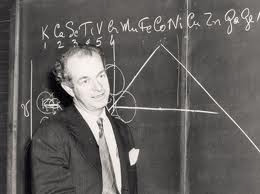
Subject and Competition.
There is no planning structure of the university looking for work from the beginning.
Comprehensive training and vocational training.
policies:
=> Purposes;
=> Goals;
=> Plans;
=> Action programs;
=> Processes;
=> Results
Intentionality policies, privileged values, design rationale and seeks to respond to problems.
The evaluation of learning is the process of obtaining relevant, valid and reliable information on a sample of processes and outcomes of student learning, from which a value judgment is issued on their quality and quantity whose main purpose is help improve learning processes. It is considered that teaching, assessment and learning are three distinct but closely related processes, where the first two are aimed at enhancing the latter. (10)
methodological evaluation frameworks
Features, risks and possibilities:
=> Curriculum;
=> Profile of egress;
=> Articulation between competition and social practice;
=> Consistency between the profile and skills.
=> Teaching Teaching;
=> External Evaluation;
=> Indicators are valued knowledge how and what their contents are.
Example in class:
Degree in public administration.
We did a study evaluating the curriculum of institutions of higher education, both from Brazil, Mexico, Argentina, United States, and others.
No class actions seek to improve our understanding of the evaluation.
Articulation between theory and practice:
=> Reflections;
=> Curriculum evaluation;
=> Evaluation is not a neutral activity;
=> Conclusions and recommendations.
____________________________
(10) Pinelo, 2002

CONEAU
National Assessment and Accreditation.
Ministry of education, science and technology.
contextualization:
=> Description of the dimensions;
=> Value judgments, judgments.
competences
Origin
Conceptualisation / debates
Evaluation
curriculum:
=> Structured in education systems;
=> Flexibility;
=> Credits;
=> Competitions.
=> Economic requirements;
=> Business;
=> Techniques;
qualified training.
This phenomenon is evident in the case of evaluation, not only by the articulation between the education field and other fields, but also the social function that complies. Indeed, to the extent that the assessment penalizes the acquisition or not of learning considered necessary for social performance, its results impact not only on the evaluated subject and its immediate surroundings in the present circumstances, but have an effect " expansive "not necessarily visible on its future integration in other fields.
As for the relations between the actors in this play they are particularly notorious today: entrepreneurs judge the value and quality of educational content and teacher training; these, in turn, discuss the parameters within which those base their judgments and students, in turn, are incorporated into this dialogue when they are able to understand the importance to their future quality of teaching to which they have access, and expect or require substantive changes it.
As of today, February 11, 2015.
Today we continue with several studies trying to understand more evaluation practices within the curriculum of the university, also talked about the final work is to make a portfolio (seminar) of the main activities undertaken in this seminar.
Plus some points still seen in class.
In 2000 the medical career change much your resume in Argentina, radical changes in their teaching.
To design the content of the curriculum activities and their respective hourly load two priority aspects were taken into account. The University promotes the organization of curricula in thematic blocks and parallel tends to structuring curricula in semiannual periods or materials. It seeks to provide the curriculum more flexible and dynamic aimed at promoting the integration of compatibility with other national and international universities (UCA Institutional Project) content. All semester courses have a duration of 16 weeks. The number of hours stipulated based on the number and extent of the proposals for each activity so successfully cover all content teaching units.
amendments made by the Board of the Faculty of Medical Sciences at the request of the Curricular Commission and approved by the Commission on Education of the University.
Modern society delegates in higher education the task of developing students skills that enable them to operate more effectively in society. (11)
Auto-problem-based learning (PBL)
In medicine there is a strong influenza.
=> Multidirectional origin in psychological theories, epistemological, didactic, pedagogical, sociological, philosophical, economic context and others.
=> Provide a central role to the student during the evaluation process.
=> A sensitive to changes and is part of an open, complex and changing as teaching evaluation system.
=> Urge to take responsibility for their own learning, identifying strengths and weaknesses.
contextualization:
=> Description of the dimensions;
=> Value judgments, judgments.
curriculum:
=> Structured in education systems;
=> Flexibility;
=> Credits;
=> Competitions.
=> Economic requirements;
=> Business;
=> Techniques;
=> Qualified training.
____________________________
(11) Barnett, 2001: 32

Self-Assessment
I think the experience was very valuable to me, a seminar approached the views within university studies, exchange of experiences group, different races have other views that were very informative for my doctoral training, especially knowing that any assessment has its intentionality and that at all times we value judgments, ethics and skills acquired by students that we are evaluating.
The act of evaluation is part of life and habits, that bring these intrinsic and extrinsic value judgments and intent as everyday professional. That it is now not only an affective teacher and replaced, for students, the role of evaluator of learning. In the example brought in the text, the author shows that exercise, the content has to be meaningful to the student, in this case a liberating educational practice through the bias of ethics above all avoiding exclusion; review is interrogating, train, inform and criticize. "for that you need a certain point and set the target where you want to go.
For teachers talk about the place of ethics in the educational environment ... shall be incorporated in the process of building a meaningful content and human values, what really prepared to face reality, the existing order and life all cases in which states. "Who defines it?", There is also the methodology that the teacher must develop so that students understand the importance of certain theme worked in salt class knowledge sharing, dialogicity in class is then lost.
Hence the idea of an evaluation of education and transformation not only to convey information and concepts. You have to find a happy medium so that the construction is important for the student and teacher through an appropriate methodology, you can unite what is important in the selection of the curriculum and the real needs of students, avoiding exclusions .
We think that is exactly the assessment that most deny their progressive discourse, returning with more determination, monologue practice with the student, using the space for the exercise of power, a power that is in harmony with the existing social order ( ...). They can not review the assessment, since only a limited facet of a larger process. (12)
According to the quality of relevant data with a view to decision-making should become the process of building a meaningful content and human values, which really prepared to face reality, the existing order and life in all cases where it established.
The act of evaluation is conscious and represents the longing of a previously developed educational community and a collective leadership.
So I firmly believe that the seminar came to fill some gaps in my knowledge knowing that there are so many, but left a path to safety. If you were giving a note to the seminar would be 9.00 - it was very enlightening in their approaches, and even had the texts as the basis for the portfolio.
________________________________
(12) Sordi, 1995: 23

Conclusion.
If we intervene to improve decision-making processes in educational evaluation it means that the teacher must be aware that it has to promote quality education for the components and educational tasks. The decision will allow the training base to be entirely valid, they will be deducted after a strong, coherent two processes of transmission of knowledge assessment.
It focused reflection of the fact that the evaluation does not consider the ethical dimension often.
The act of assessment and its implications in the field of humanistic, moral and ethical evaluation of the law of the Brazilian educational scenario ethical dimension.
Law review is part of everyday life, the human habit, constantly evaluate .The practice evaluation as a value judgment, merit analysis. The teacher as implacable judge. The ethical dimension is based on a plan where ethical principles must be clear because they will guide behavior; They are giving rise to ethical questions: how to evaluate what has not worked with students?
Teachers in assessments do not make clear the problems that lead students astray (intentional or not);
Who evaluates must be one that accompanies the student and their development; so when evaluated ignoring this dimension, there is disrespect and all players lose in this process:
To Luckesi - "a judgment of quality of relevant data in view of the decision-making" in this case to see how the same sentence, value judgments definition turn usually leads to something subjective is who. decides?
Evaluation should be an instrument to base and interpret the achievements and errors within a frame of reference and from this deduce solutions.
School success and failure are not an objective measure of actual skills, representations are raised by educational institutions that define standards of conduct, measures degrees of knowledge, sets criteria and levels.
Quality assessments have information in the form of dialogue, identify and explain errors, suggest new interpretations of the curriculum, in order to improve strategies and attitudes have constructivist teaching approaches. Invited to observe more methodically students to adjust teaching interventions to optimize learning.
If the evaluation is understood as a simple verification of the knowledge acquired, it is reducing the ambition of the process. In fact, the teacher qualifies according to the results of a test or by the remarks made throughout the entire period. But you can also put a high rating to encourage student or a very low to encourage him to work harder.
Dialogue is a kind of posture necessary, to the extent that humans are to reflect on their reality as we do and re-do (...) Through dialogue, reflecting together on what we know and we do not know, we can then act critically to transform reality. (13)
When the moment of truth in the teaching / learning is approved and not learning, we find that the self-assessment of students is conceived as a trap that facilitates achieving good grades and not a reflection process through which the teacher can understand what students think about their learning.
This struggle of teachers and students before the disciplinary phenomena of the evaluation (the teacher is that students do not cheat and leave them as is, airy assessments) misrepresents the nature of teaching and learning. No matter what, how much, how and why to learn but why roads is easier and safer to approve.
"Among the qualification, assessment or judgment that is given to an examination or any type of conduct or behavior of a student, and that realization, conduct or materially observable student work, there is an intermediate process of making a judgment by the evaluator . the scheme proposed by Caverni and Noizet (l978) provides the interaction between three basic elements that interact in the act of evaluation: the evaluator, provided with a memory containing various information about product performance or behavior to evaluate and performing an act of comparison. the interaction involves a measurement, which is the essence of the act of withdrawal "(Gimeno, 1988).
Therefore the assessment is a complex process which has many prisms and focus depends on the intention to review. I think the valuation has to take a look for the emancipation of students and active subjects of their own assessment of their learning, and that learning is meaningful, contextualized, with values for both the labor market and society in life. This study does not end with these few pages on the assessment as this issue is very large, important and complexo. Maybe if I had a thousand pages would not be even close to many details that could be addressed, but in the whole and my vision of an eternal apprentice. Still hope to collaborate with some of the teachings that have been passed.
_____________________________
(13) Freire, 1986.

BIBLIOGRAPHY
BARNETT R. (2001). The limits of competition. Knowledge, higher education and society. Barcelona-Spain: Editorial Gedisa.
FREIRE, Madalena. A paixão of conhecer or world. Rio de Janeiro, Paz e Terra, 1986.
Gimeno Sacristan, J. (1995). "The assessment of teaching" in: Gimeno Sacristan, J. and Pérez Gómez, A. I. Understanding and transform teaching, 4th ed, Madrid. Morata, pp. 334-397.
KVALE, S. (1992). "The evaluation and decentralization of knowledge", Journal of Education, (299), pp. 119-141.
MORENO, T. (2000). Student assessment in the context of the development of Secondary Education (ESO): An ethnographic study, Unpublished Doctoral Thesis, Department of Teaching and School Organization, University of Murcia, Spain.
PALACIOS, C. (2002). Mexico
pp.
Mexico.
- The Influence Of Teacher Education Supervisor In Training Faculty. Professional Education Series
The Influence of Teacher Education Supervisor in Training Faculty. Professional Education Series Professional Teacher Supervisor is one who observes the process and progress of the teaching and learning of the school. It evaluates the performance of...
- Assessment On A Multidimensional Approach
Assessment on a multidimensional approach According Kenski, Clementino and Oliveira (2006) diagnostic assessment, "is embedded in the teaching-learning process as an element capable of providing the collection of fundamental data to support the planning...
- The Influence Of The Supervisory Teacher Training In Educational Faculty . Series Original Education Professionals
The influence of the Supervisory Teacher Training in Educational Faculty . Series Original Education Professionals The Influence of Teacher Education Supervisor in Training Faculty . Professional Teacher Supervisor is one who observes the process and...
- The Influence Of The Supervisory Teacher Training In Educational Faculty.
The influence of the Supervisory Teacher Training in Educational Faculty. joseluizts2013 April 16th, 2013 3 The Influence of Teacher Educational Supervisor in Training Faculty. The Professional Teacher Supervisor is one who observes the process and progress...
- The Influence Of The Supervisory Teacher Training In Educational Faculty.
The influence of the Supervisory Teacher Training in Educational Faculty. joseluizts2013 April 16th, 2013 3 The Influence of Teacher Educational Supervisor in Training Faculty. The Professional Teacher Supervisor is one who observes the process and progress...
Aprendizado
Seminar Learning Assessment
Seminar Learning Assessment

DEPARTMENT OF GRADUATE
Ed.D.
COHORT 2014
Update on Evaluation of Learning.
Professor Dr. Mirian Ines Capelari
Topic: Seminar Assessment of learning
Author: José Luiz Teixeira da Silva¹
_____________________________
¹ Professor, Specialist in supervision and school administration, Specialist in educational psychology, pedagogy specialist in business, specialist in public law and PhD student at UCSF Education.
From this position, the examination is the main technique and in many cases the only, used to assess the work of individual students. For this reason, long examinations have become instruments of power to control access to the privileges of education and influence the learning process .¹
_____________________________
(2) Kvale, 1992; Popkewitz, 1992; Gimeno, 1995

INTRODUCTION.
Portfolio Update in Assessment of Learning.
The aim of this study is to show yet of a personal perspective, the perspective student do that was developed at the seminar on updated assessment of learning. The seminar was taught by Professor Dr. Miriam Ines Capelari and addressed in the evaluation of 9, 10 and 11 February 2015 at the Catholic University of Santa Fe, Argentina.
Portfolio is a work produced by the student for a specified period (the school year, a seminar for example). Cando is installed properly, this collection becomes an excellent evaluation tool.
According Arter "A portfolio is a deliberate selection of student work that tells the story of their efforts, progress or achievement. In his student participation in selecting contents to be included, the selection criteria and guidelines for judging merit and evidence of the process of self-reflection. "(3)
Activities must meet the student considers relevant, chosen after an analysis with their help. The criterion of choice, it is worth remembering, it can not be just excellence. What matters is the selection of works that demonstrate the learning path.
Ideally, the portfolio has the following structure: introduction (presentation of content), a brief description of each job, the dates on which they were made a review section with reflections of student self-evaluation and a part reserved their observations.
In consideration of the importance of evaluation as integrated into a system of values that are part of its solid foundation inclusive process, research and. Knowledge and willingness to comply with the duties and social rights, among others. Through the use of methodologies and analytical techniques.
__________________________________________
(3) Arter, 1990, p. 27

Date, Santa Fe, Monday, February 9, 2015.
Today began the seminar update on the assessment of learning, taught by Prof. Dr.. Mirian Ines Capelari, began presenting as usual each one indicate that it was formed, the undergraduate, graduate, what he does in his work and from there went to some basic definitions of what is the assessment, development of criteria for evaluation and self-assessment. As each student has a different view of the issues that are being tested, on how to understand the evaluation by a personal projection but making that evaluation is based on the significant theories.
Assessment criteria
=> Reflections;
=> Questions;
=> Reviews;
=> Reviews on the topics covered.
Conceptualizing educational evaluation
It is the way to test learning, contextualized or not, in order to qualify teaching, and develop action strategies to see if teaching is understood, assimilated, in its broadest form or as a more coherent encyclopedic learning, stored results, .
Report considers the main problems involved in the issue of educational evaluation.
The way to approach educational assessment is only in each student, means that every student learns differently, it is very difficult to make meaningful for all learning, it is also important to be objective and emancipatory, not as a means of control, more if as a instigator of significant new knowledge.
Activity 2
Ethics and Evaluation
Group: Erika, Jose Luiz, Vania, Wagner, Keyla, Alba and Valdilene.
It focused reflection of the fact that the evaluation does not consider the ethical dimension often.
http://seer.fclar.unesp.br/iberoamericana/article/view/6291
Educational evaluation can be:
=> Path to correct diagnosis, mediate, observe the results;
=> Continuous process;
=> Educational, reflective and dialogic process;
=> Rethinking education practice;
=> Analyze lessons learned and their application;
=> Identify successes and mistakes;
=> Complex and thoughtful look of the educational process;
=> Intentionality;
=> You will succeed in education process;
=> Evaluation is a value judgment.
Problems in the evaluation:
Often the interest in evaluation, in an impoverishing general sense, is limited to the results obtienem students. In practice the attention is focused and limited to the ratings, which specify the results and give closed and completed a process that must remain open unfinished.
=> Inadequate instruments;
=> Incompatibility evaluation;
=> Poor teacher training;
=> Teaching and Learning part;
=> Meanings, contexts and perspectives;
=> Evaluation, self-assessment and intentionality.
The willingness of teachers to make assessment a key learning resource, a resource for training, while means ensuring quality learning, rather than an instrument of selection, exclusion, so linked to a meritocratic vision of education.
Effect assessment:
=> Sorts;
=> Exclusionary;
=> Value judgment;
=> Emancipatory;
=> Transformadora.
The assessment is to be in this sense a form of self-regulation of the same process that sustains and justifies the necessary adjustments to ensure proper training process. The penalty for mistakes made in the process has to do with a constructive view. The story of learning, POSTMAN (1995 pág145) explains, narrates the adventure of overcoming our mistakes.
On the other hand, the work of inquiry which enable and compel reflection and dialogue are appropriate means to walk the path of discovery and meeting.
The assessment should not be a means to
that subjects adapt to instructional media,
but a system to adapt conditions
instruct individuals for the purpose of
maximize their potential for success.
"The Overall Assessment Prophcy"
(Dochy and Mc Dovell, 1997)
The evalitativos criteria should be neither hidden nor mysterious but transparent. The attitude of teachers and students can not be passive but all must be activated and perfectly assembled in a project perceive it as common. The evaluation from this cultural perspective implies revaluation and self reaching intended learning achievements.
"Somehow, teaching is carried out in a climate of evaluation, while homework communicate internal quality criteria in the processes to be performed and the products they expected and therefore we can say that there is a certain climate control in the daily dynamics of teaching, without necessarily manifest itself in formal processes, on the other hand, are very common. a student knows that you evaluate when asked when will oversee tasks when the teacher proposes a line work, when you disapprove "(Gimeno, 1988)
First we saw that the evaluation is never neutral, they always have a goal to achieve the goal of maintaining or transform all depends on what you want to do with learning, if you want traditional or emancipatory.
In this regard, it is noted that "evaluation is a phenomenon usually confined to the classroom, based on the students and limited control of knowledge gained through testing of various kinds" (Santos Guerra, 1993). (4)
This will determine who is the intention of what we want to evaluate a curriculum for the labor market will be different from a resume to political and social education of the citizens. Ideally, a curriculum has mediated intention to form the citizen and at the same time meet the job market. So every time we evaluate we have to take into account what? Why? we are evaluating.
Thus, the evaluation joined the examiner and control tradition that has characterized their practices directly linked to the assessment of the results and restricted to student learning, whose effects continue to be felt until now. (5)
The qualities of the evaluator:
=> Justice;
=> Impartial Values;
=> Ethics;
=> Capacity;
=> Responsibility;
Evaluation issues:
=> Validity;
=> Credibility;
=> Consistency;
=> Justice;
=> Is a value judgment, it is comparative;
=> Requires defining criteria, standards;
=> It is not always quality is not always fair;
=> Moral, ethical and social responsibility;
=> Subjective Implication;
_________________________
(4) Santos Guerra, 1993: 23
(5) Moreno, 2000, Unpublished Doctoral Thesis

Question:
Can there be different assessments of the same object?
If indeed.
Illuminative evaluation as a socio-anthropological paradigm taking into account the context of educational programs, the system of teaching and learning medium.
Evaluation criteria:
=> Expression of an identity;
=> Materials;
=> Educational approach;
=> Ideological values;
=> Multicultural.
institutional project:
=> Educational approach;
=> Expression identity;
=> Ideological values.
Question:
What the curriculum evaluated?
=> Various forms of interpretation of the plans of study;
=> Different modes of assessment;
=> Different purposes and meanings.
Build the object of evaluation:
What is going to evaluate?
Object.
What purpose? Why?
Goals.
What purpose? For what?
Understand, improve and make decisions.
Determine the audience will be directed evaluation (Who?
Protagonists and others.
Rating assessment:
=> List components of the object to be evaluated;
=> Expected results and effects that may occur;
=> Involves determining how and generate culture.
"Judge the value or merit of an object" (6)
_________________________________
(6) Sttuflebeam and Schinkfield, 1987

Following the development of qualitative approaches, it has expanded the concept of evaluation defined as "a process of collecting and providing evidence on the functioning and evolution of classroom life, based on which decisions about the possibility taken , effectiveness and value education curriculum. Rather than measuring, evaluation involves understanding and value. " (7)
It is important to rethink teaching practice, qualifying teachers so that they are not mere reproduction of knowledge produced, but the persons authorized to make education meaningful and contextualized. Not enough to check the learning, you must first find out if the teachings were relevant for intellectual, moral, social that student.
It is difficult for those outside the school improve the quality of resources within it, not just as thought in the 50s and 60s, with teachers providing new books and teaching materials or a consultancy. Is the quality of the teacher that determines the quality of education, and in general, experience shows that teachers are bad executors of the ideas of others. The development of teachers is a precondition for the development of curriculum, and teachers should play an active role in the development and improvement of the curriculum. His understanding, sense of responsibility and commitment in improving the educational experience of students are essential ingredients. (8)
For children with special needs or minority, it is only a pretext to warn that the school generates particular identities held on the grids assessment educabilidad of subjects, their time learning or problem solving, the ability regulate their times depending on the collective regulation of their ability to understand the views or alternative conceptualizations of world culture has developed for centuries and valued as necessary to instill. In this sense, returning to the initial theme, which should concern would be the criteria to define both the heterogeneous as homogeneous. Both appear as animated by political constructions relative efficiency or effectiveness in achieving the objectives of the schooling.
_____________________________
(7) Pérez Gómez, 1989: 431
(8) Sancho, et. to 1998

Date, Santa Fe, Tuesday, February 10, 2015
Today we were provoked to answer some questions about the evaluation, because as doctoral students seek education through dialogue and reach some conclusions that have been shared with the whole group.
theoretical and methodological approaches
Do comparative studies curriculum are advisable?
Yes. There is always something that can be used in other curriculum, often enriching, humanizing, improve procedures.
Is it possible to generalize from local situations?
Yes. From the points of view isolated and after seeing all the other views we can see that it is possible that a minor point of view can be reached points more complex view.
Are assessments can be neutral?
No, in all there is intentionality.
Legitimizing policies through evaluations.
Impose assessments needs and preferences.
You might think that evaluation is a specific situation that transcends the relationship between a teacher and his student, but schooling is a social action and its results cover all social levels of student life. His note or qualification shall be seated in an academic record certificate, with broad social implications. It will affect their school promotion, insertion in the workplace, access to scholarships and so on. At the level of feedback functions affects educational programs, teaching strategies and assessment strategies themselves. (9)
holistic view of curriculum
In Argentina I had a strong resistance to external evaluation in the 90s, however, was very important to improve the teaching of critical and emancipatory way, social concepts and cultural context.
curriculum policy:
=> Community work;
=> The student society;
=> The humanized curriculum.
Analysis of the curriculum:
=> Courses;
=> Competition.
Integral formation:
Social =>;
=> Teaching;
=> Ethics.
_____________________________
(9) Palacios, 2002

Subject and Competition.
There is no planning structure of the university looking for work from the beginning.
Comprehensive training and vocational training.
policies:
=> Purposes;
=> Goals;
=> Plans;
=> Action programs;
=> Processes;
=> Results
Intentionality policies, privileged values, design rationale and seeks to respond to problems.
The evaluation of learning is the process of obtaining relevant, valid and reliable information on a sample of processes and outcomes of student learning, from which a value judgment is issued on their quality and quantity whose main purpose is help improve learning processes. It is considered that teaching, assessment and learning are three distinct but closely related processes, where the first two are aimed at enhancing the latter. (10)
methodological evaluation frameworks
Features, risks and possibilities:
=> Curriculum;
=> Profile of egress;
=> Articulation between competition and social practice;
=> Consistency between the profile and skills.
=> Teaching Teaching;
=> External Evaluation;
=> Indicators are valued knowledge how and what their contents are.
Example in class:
Degree in public administration.
We did a study evaluating the curriculum of institutions of higher education, both from Brazil, Mexico, Argentina, United States, and others.
No class actions seek to improve our understanding of the evaluation.
Articulation between theory and practice:
=> Reflections;
=> Curriculum evaluation;
=> Evaluation is not a neutral activity;
=> Conclusions and recommendations.
____________________________
(10) Pinelo, 2002

CONEAU
National Assessment and Accreditation.
Ministry of education, science and technology.
contextualization:
=> Description of the dimensions;
=> Value judgments, judgments.
competences
Origin
Conceptualisation / debates
Evaluation
curriculum:
=> Structured in education systems;
=> Flexibility;
=> Credits;
=> Competitions.
=> Economic requirements;
=> Business;
=> Techniques;
qualified training.
This phenomenon is evident in the case of evaluation, not only by the articulation between the education field and other fields, but also the social function that complies. Indeed, to the extent that the assessment penalizes the acquisition or not of learning considered necessary for social performance, its results impact not only on the evaluated subject and its immediate surroundings in the present circumstances, but have an effect " expansive "not necessarily visible on its future integration in other fields.
As for the relations between the actors in this play they are particularly notorious today: entrepreneurs judge the value and quality of educational content and teacher training; these, in turn, discuss the parameters within which those base their judgments and students, in turn, are incorporated into this dialogue when they are able to understand the importance to their future quality of teaching to which they have access, and expect or require substantive changes it.
As of today, February 11, 2015.
Today we continue with several studies trying to understand more evaluation practices within the curriculum of the university, also talked about the final work is to make a portfolio (seminar) of the main activities undertaken in this seminar.
Plus some points still seen in class.
In 2000 the medical career change much your resume in Argentina, radical changes in their teaching.
To design the content of the curriculum activities and their respective hourly load two priority aspects were taken into account. The University promotes the organization of curricula in thematic blocks and parallel tends to structuring curricula in semiannual periods or materials. It seeks to provide the curriculum more flexible and dynamic aimed at promoting the integration of compatibility with other national and international universities (UCA Institutional Project) content. All semester courses have a duration of 16 weeks. The number of hours stipulated based on the number and extent of the proposals for each activity so successfully cover all content teaching units.
amendments made by the Board of the Faculty of Medical Sciences at the request of the Curricular Commission and approved by the Commission on Education of the University.
Modern society delegates in higher education the task of developing students skills that enable them to operate more effectively in society. (11)
Auto-problem-based learning (PBL)
In medicine there is a strong influenza.
=> Multidirectional origin in psychological theories, epistemological, didactic, pedagogical, sociological, philosophical, economic context and others.
=> Provide a central role to the student during the evaluation process.
=> A sensitive to changes and is part of an open, complex and changing as teaching evaluation system.
=> Urge to take responsibility for their own learning, identifying strengths and weaknesses.
contextualization:
=> Description of the dimensions;
=> Value judgments, judgments.
curriculum:
=> Structured in education systems;
=> Flexibility;
=> Credits;
=> Competitions.
=> Economic requirements;
=> Business;
=> Techniques;
=> Qualified training.
____________________________
(11) Barnett, 2001: 32

Self-Assessment
I think the experience was very valuable to me, a seminar approached the views within university studies, exchange of experiences group, different races have other views that were very informative for my doctoral training, especially knowing that any assessment has its intentionality and that at all times we value judgments, ethics and skills acquired by students that we are evaluating.
The act of evaluation is part of life and habits, that bring these intrinsic and extrinsic value judgments and intent as everyday professional. That it is now not only an affective teacher and replaced, for students, the role of evaluator of learning. In the example brought in the text, the author shows that exercise, the content has to be meaningful to the student, in this case a liberating educational practice through the bias of ethics above all avoiding exclusion; review is interrogating, train, inform and criticize. "for that you need a certain point and set the target where you want to go.
For teachers talk about the place of ethics in the educational environment ... shall be incorporated in the process of building a meaningful content and human values, what really prepared to face reality, the existing order and life all cases in which states. "Who defines it?", There is also the methodology that the teacher must develop so that students understand the importance of certain theme worked in salt class knowledge sharing, dialogicity in class is then lost.
Hence the idea of an evaluation of education and transformation not only to convey information and concepts. You have to find a happy medium so that the construction is important for the student and teacher through an appropriate methodology, you can unite what is important in the selection of the curriculum and the real needs of students, avoiding exclusions .
We think that is exactly the assessment that most deny their progressive discourse, returning with more determination, monologue practice with the student, using the space for the exercise of power, a power that is in harmony with the existing social order ( ...). They can not review the assessment, since only a limited facet of a larger process. (12)
According to the quality of relevant data with a view to decision-making should become the process of building a meaningful content and human values, which really prepared to face reality, the existing order and life in all cases where it established.
The act of evaluation is conscious and represents the longing of a previously developed educational community and a collective leadership.
So I firmly believe that the seminar came to fill some gaps in my knowledge knowing that there are so many, but left a path to safety. If you were giving a note to the seminar would be 9.00 - it was very enlightening in their approaches, and even had the texts as the basis for the portfolio.
________________________________
(12) Sordi, 1995: 23

Conclusion.
If we intervene to improve decision-making processes in educational evaluation it means that the teacher must be aware that it has to promote quality education for the components and educational tasks. The decision will allow the training base to be entirely valid, they will be deducted after a strong, coherent two processes of transmission of knowledge assessment.
It focused reflection of the fact that the evaluation does not consider the ethical dimension often.
The act of assessment and its implications in the field of humanistic, moral and ethical evaluation of the law of the Brazilian educational scenario ethical dimension.
Law review is part of everyday life, the human habit, constantly evaluate .The practice evaluation as a value judgment, merit analysis. The teacher as implacable judge. The ethical dimension is based on a plan where ethical principles must be clear because they will guide behavior; They are giving rise to ethical questions: how to evaluate what has not worked with students?
Teachers in assessments do not make clear the problems that lead students astray (intentional or not);
Who evaluates must be one that accompanies the student and their development; so when evaluated ignoring this dimension, there is disrespect and all players lose in this process:
To Luckesi - "a judgment of quality of relevant data in view of the decision-making" in this case to see how the same sentence, value judgments definition turn usually leads to something subjective is who. decides?
Evaluation should be an instrument to base and interpret the achievements and errors within a frame of reference and from this deduce solutions.
School success and failure are not an objective measure of actual skills, representations are raised by educational institutions that define standards of conduct, measures degrees of knowledge, sets criteria and levels.
Quality assessments have information in the form of dialogue, identify and explain errors, suggest new interpretations of the curriculum, in order to improve strategies and attitudes have constructivist teaching approaches. Invited to observe more methodically students to adjust teaching interventions to optimize learning.
If the evaluation is understood as a simple verification of the knowledge acquired, it is reducing the ambition of the process. In fact, the teacher qualifies according to the results of a test or by the remarks made throughout the entire period. But you can also put a high rating to encourage student or a very low to encourage him to work harder.
Dialogue is a kind of posture necessary, to the extent that humans are to reflect on their reality as we do and re-do (...) Through dialogue, reflecting together on what we know and we do not know, we can then act critically to transform reality. (13)
When the moment of truth in the teaching / learning is approved and not learning, we find that the self-assessment of students is conceived as a trap that facilitates achieving good grades and not a reflection process through which the teacher can understand what students think about their learning.
This struggle of teachers and students before the disciplinary phenomena of the evaluation (the teacher is that students do not cheat and leave them as is, airy assessments) misrepresents the nature of teaching and learning. No matter what, how much, how and why to learn but why roads is easier and safer to approve.
"Among the qualification, assessment or judgment that is given to an examination or any type of conduct or behavior of a student, and that realization, conduct or materially observable student work, there is an intermediate process of making a judgment by the evaluator . the scheme proposed by Caverni and Noizet (l978) provides the interaction between three basic elements that interact in the act of evaluation: the evaluator, provided with a memory containing various information about product performance or behavior to evaluate and performing an act of comparison. the interaction involves a measurement, which is the essence of the act of withdrawal "(Gimeno, 1988).
Therefore the assessment is a complex process which has many prisms and focus depends on the intention to review. I think the valuation has to take a look for the emancipation of students and active subjects of their own assessment of their learning, and that learning is meaningful, contextualized, with values for both the labor market and society in life. This study does not end with these few pages on the assessment as this issue is very large, important and complexo. Maybe if I had a thousand pages would not be even close to many details that could be addressed, but in the whole and my vision of an eternal apprentice. Still hope to collaborate with some of the teachings that have been passed.
_____________________________
(13) Freire, 1986.

BIBLIOGRAPHY
BARNETT R. (2001). The limits of competition. Knowledge, higher education and society. Barcelona-Spain: Editorial Gedisa.
FREIRE, Madalena. A paixão of conhecer or world. Rio de Janeiro, Paz e Terra, 1986.
Gimeno Sacristan, J. (1995). "The assessment of teaching" in: Gimeno Sacristan, J. and Pérez Gómez, A. I. Understanding and transform teaching, 4th ed, Madrid. Morata, pp. 334-397.
KVALE, S. (1992). "The evaluation and decentralization of knowledge", Journal of Education, (299), pp. 119-141.
MORENO, T. (2000). Student assessment in the context of the development of Secondary Education (ESO): An ethnographic study, Unpublished Doctoral Thesis, Department of Teaching and School Organization, University of Murcia, Spain.
PALACIOS, C. (2002). Mexico
pp.
Mexico.
loading...
- The Influence Of Teacher Education Supervisor In Training Faculty. Professional Education Series
The Influence of Teacher Education Supervisor in Training Faculty. Professional Education Series Professional Teacher Supervisor is one who observes the process and progress of the teaching and learning of the school. It evaluates the performance of...
- Assessment On A Multidimensional Approach
Assessment on a multidimensional approach According Kenski, Clementino and Oliveira (2006) diagnostic assessment, "is embedded in the teaching-learning process as an element capable of providing the collection of fundamental data to support the planning...
- The Influence Of The Supervisory Teacher Training In Educational Faculty . Series Original Education Professionals
The influence of the Supervisory Teacher Training in Educational Faculty . Series Original Education Professionals The Influence of Teacher Education Supervisor in Training Faculty . Professional Teacher Supervisor is one who observes the process and...
- The Influence Of The Supervisory Teacher Training In Educational Faculty.
The influence of the Supervisory Teacher Training in Educational Faculty. joseluizts2013 April 16th, 2013 3 The Influence of Teacher Educational Supervisor in Training Faculty. The Professional Teacher Supervisor is one who observes the process and progress...
- The Influence Of The Supervisory Teacher Training In Educational Faculty.
The influence of the Supervisory Teacher Training in Educational Faculty. joseluizts2013 April 16th, 2013 3 The Influence of Teacher Educational Supervisor in Training Faculty. The Professional Teacher Supervisor is one who observes the process and progress...
